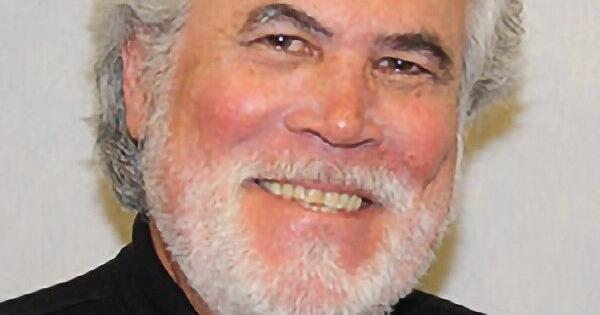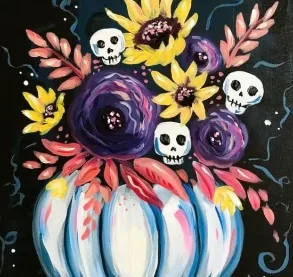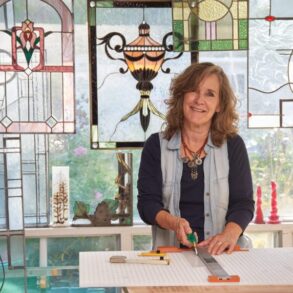
Dennis Assaf was the young music director at Munholland Methodist Church in Metairie in 1977, when he decided to organize a Christmas concert with the choirs of seven neighboring churches lining Metairie Road.
He convinced the then-New Orleans Symphony Orchestra to play Handel’s Messiah and talked the Jefferson Parish Council into giving him $1,000 to promote the event and pay the musicians a small stipend.
The performance was a hit and the Jefferson Performing Arts Society was born, with a mission to be “the catalyst to build a performing arts center in Jefferson Parish.” In the 46 years since, Assaf has been at the helm of the organization, which finally got its 1,000-seat performing arts center on Airline Drive in 2015 and now includes a ballet, theater company, orchestra, children’s programming and a satellite theater on the West Bank in Westwego.
In 2023, Assaf turned over day-to-day operations of the organization to Executive Director Rob DeViney, whose father, the late Councilman Bob DeViney, helped fund JPAS in its infancy. But Assaf still serves as founding artistic director of JPAS. In this week’s Talking Business, he discusses the blow COVID dealt to the organization, its road to recovery and why we need performing arts.
Interview has been edited for length and clarity.
A lot of people probably still don’t realize what JPAS does. True?
Most definitely. We’re a public nonprofit organization, not owned by the parish, but we are obviously the biggest arts organization in the parish, and we are the most culturally diverse arts organization in the state. We do it all. We produce it all. Ballet, opera, Broadway musicals, children’s shows, plays, stand-up comedy. And we attract talent from all over. We’re doing “Jesus Christ Superstar” in March, and one of our leads sang with the Metropolitan Orchestra in New York. Another is with the Tampa Opera.
Do y’all produce all your own stuff or bring in outside companies?
Both. There are three models. A production can come in and ask for dates and rent the theater; or, they can come in with a project they want us to buy and if we like it, we will co-produce it and share the risk. I probably get between three and five scripts for plays or musical theater from all over the country every week. The third model is to do it all ourselves. We take all the risk, get all the reward and it is our production from start to finish. If it’s a Broadway show, for instance, we’ll buy the license, create the sets, audition for talent, pick the orchestra and put it on as a JPAS Presents production.
For 38 of the years, you’ve been at JPAS, you worked to get a theater. In 2015, the conservatory opened on Airline Drive. How’s it working out?
It’s fabulous. For the first seven years, until 2022, we were the artistic resident company there and ASM Global, now SMG, managed it so any outside group had to pay a substantial rental fee. In 2022, we took over management and our portfolio has exploded into so many other things. Now that we have control over the calendar, we’re able to bring in all sorts of outside groups, like Blind Boys of Alabama, which performed here before Christmas and did really well.
Are you membership based? Subscription?
We have a mailing list of 25,000 but don’t really have a membership. We are considering reinstating it, but COVID totally dismantled everything. We’re still recovering. We had 17 full-time employees before COVID. Now, we have eight, if you count me. We basically cut ourselves in half. We’re still digging out of it. But we’re on the road to recovery.
How are you coping?
We are cutting costs and tapping into a line of credit. We’re digging out of it and still putting on fantastic productions, but we’re putting on fewer. We used to do 17 a year just on our own. Now we’re down to about seven or eight. We’re building back up, though. The 2024-2025 season will have more big productions, including some that were canceled due to COVID. And we’re finishing this season strong with “Jesus Christ Superstar” and “Ballet Goes to Broadway.”
Arts organizations are so vital to a community, but they always struggle. How has JPAS survived over the years?
Ticket sales do not cover the cost of anything we do. That is typical of any arts organization. If you get 40% of your budget covered by ticket sales, you’re doing great. It takes all kinds of extra avenues for income. We rent our costumes and scenery to other organizations and companies to generate revenues. We also hire out our sets department to build sets and props for clients like The National WWII Museum. It’s a profit-making thing or we wouldn’t do it, but it is a modest profit. If we quote someone $5,000 for a set, we probably make $1,000 to $1,500 off of it.
Why don’t you think more people are aware of what y’all do?
I’ll be in the orchestra pit conducting and people will say, “I live in Jefferson Parish and had no idea this theater was here and I had no idea JPAS existed or how good the quality of your work is.” There is definitely a metropolitanwide prejudice against anything arts-related that is not in New Orleans. The assumption is, if it’s not New Orleans, it’s got to be second rate.
So do you think it’s a messaging problem?
We could always do better in terms of marketing and outreach, but then it becomes a money thing. Social media has been good in that respect. It is a very inexpensive way to get the word out. But it is an image thing — an image that something in Jefferson Parish is not going to be as good as something in New Orleans. It is a hard thing to overcome.
Why do the arts matter?
We are graduating class after class of young people who have had no exposure to the arts. They’ve never been exposed to a Broadway show, much less an opera or a symphony. We’re not educating the whole human being. It’s frustrating. Give kids music and you’ll have smarter mathematicians, smarter students, smarter employees. But it’s such a battle.







